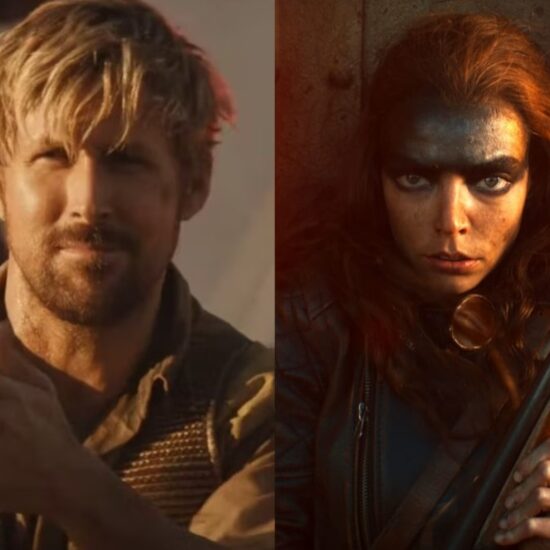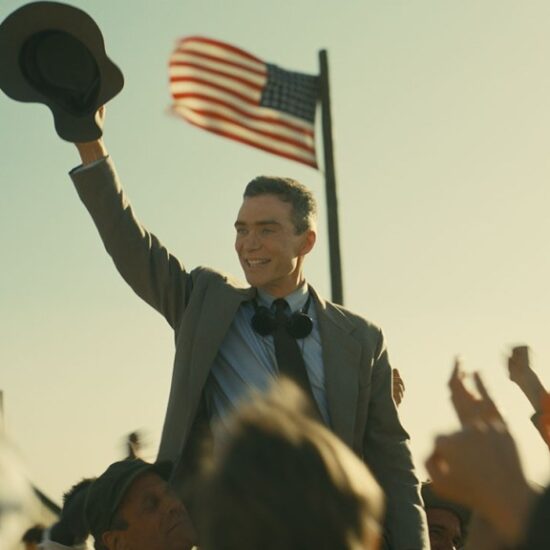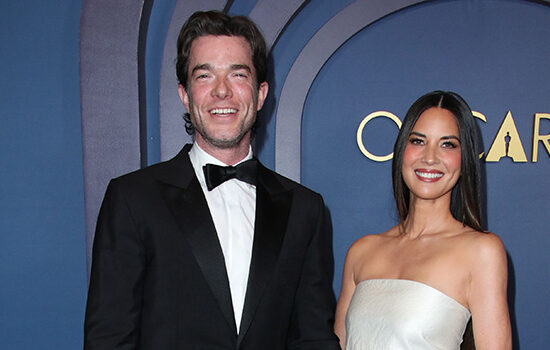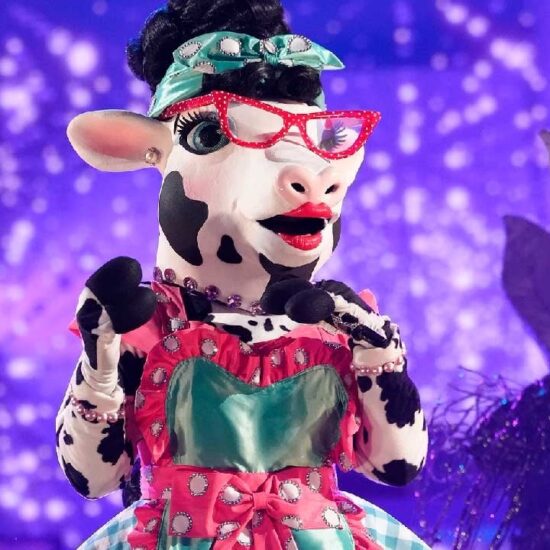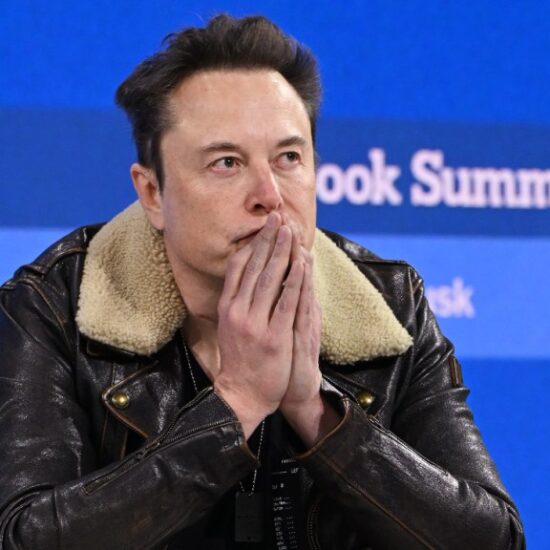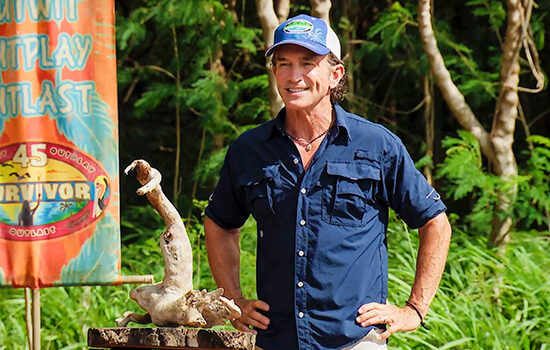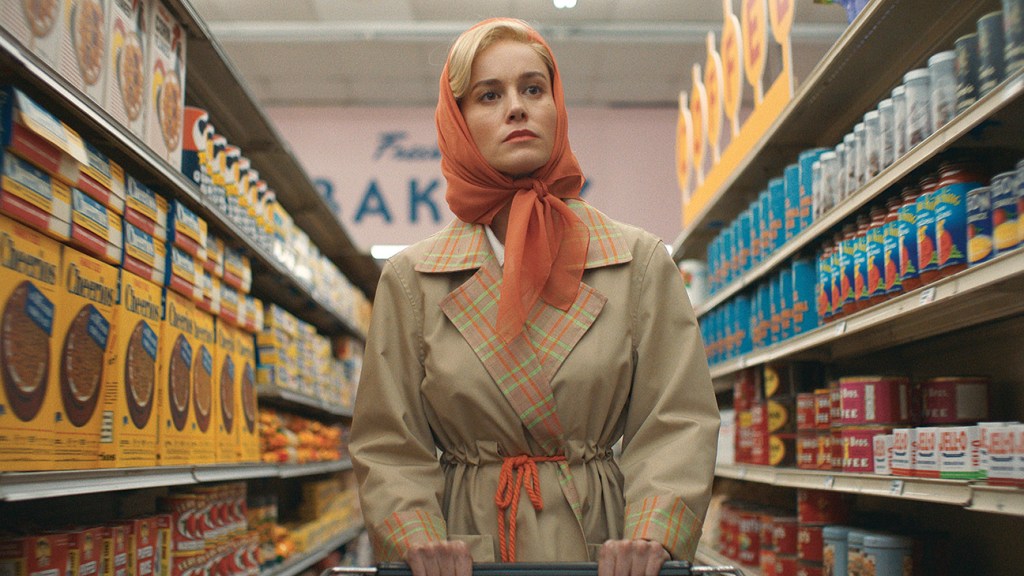
When Lee Eisenberg’s wife first read Bonnie Garmus’ novel Lessons in Chemistry, she immediately said, “This is a series.”
“I started reading the book that night and just flipped for it,” recalls the showrunner, who developed the TV adaptation for the Apple TV+ series that stars Brie Larson in the lead role of chemist Elizabeth Zott.
“I thought the writing was incredible, and the twists and turns completely took me by surprise,” he says. “I’ve never done this before, but I called Apple and I said, ‘If there’s anything to be done on this show, I just want to raise my hand. And I left it like that.’ ”
To Eisenberg’s delight, the streamer was interested.
“They said, ‘Oh, we’re actually looking for a writer. Do you have time to meet with Brie in a few days?’ And within a few days, I was on a Zoom with Brie. We talked about the book and what resonated for each of us, and we were very much aligned. We hit it off, and off we went.”
What were some of the major changes you made when developing this series?
The first is the dog, Six-Thirty. So much of the book is from the dog’s point of view. He’s said to have a vocabulary of thousands of words, and when you get to the reality of shooting with an animal, something like that could take hours. We knew very early on that we weren’t going to give the dog that same treatment, but we still wanted to honor the book. I found the dog’s perspective to be so compelling, so we decided to devote one episode to that element and keep him not just as the family pet, but as a character you’re able to connect with emotionally.
Lee Eisenberg
Steven Simione/Getty Images
The other big change was the character of Harriet. When we were casting the show, we had pinned Aja Naomi King for a different role and we hadn’t found our Harriet yet. We were obsessed with Aja, so we started talking about the prospect of making [Harriet] a Black woman with a family of her own who’s one of Elizabeth’s contemporaries. While Elizabeth is pushing up against patriarchy, what if Harriet has an even bigger struggle where she’s fighting for the survival of her family and her neighborhood while this government bureaucracy is trying to build a freeway through this upper-middle class, affluent, predominantly Black neighborhood? Seeing Harriet and Elizabeth on parallel tracks create this unlikely friendship felt really rich. Elizabeth’s victories are so small in comparison to what Harriet is up against. Taking your protagonist, who you’re rooting for the entire time, and then having another character challenge them in those moments was really appealing.
How would you describe Brie Larson’s interpretation of Elizabeth Zott?
Elizabeth is one of my favorite characters that I’d ever read, and so many of the adjectives that I would use to describe her are exactly the same that I would give to Brie. She’s whip-smart, slyly funny, incredibly focused, and she has an intensity to her; she’s equal parts wit and grit. The role was demanding because, setting aside the fact that Brie had to look like an incredibly competent rower, and a professional chef, and a world-class chemist, she also suffers great loss. You’re seeing her as a first-time mother and all the struggles that come with that. Having an actress of her caliber who’s able to pull that off, and on top of it find all these slightly funny moments, both scripted and unscripted, whether it’s a look, or a roll of the eyes, or the way she delivers a line — she inhabited this role in a way that exceeded all my expectations.
What made Lewis Pullman right for the role of Calvin?
From the moment he showed up on set, I could not take my eyes off him. Brie is an Oscar winner, and he was toe-to-toe with her in every single scene. He’s intense, he’s smoldering, and he’s incredibly charismatic. Calvin is intimidating to his colleagues and then has this amazing capacity for warmth with Elizabeth and with the dog. My wife and I would sit for an hour every night and watch the dailies — what the two of them were doing together was so tender and beautiful, and we were so awestruck by what we were seeing. The other thing is that by watching those dailies and seeing my wife’s reaction to Lewis, which concerned me a little bit, I decided to find ways of incorporating him into more episodes. Initially, he was only meant to be in three episodes. Ultimately, I wrote him into five because I felt very confident that the audience would want more of him.
Episode two is crucial to the audience building an emotional connection with Elizabeth in order to appreciate her personal journey after Calvin’s death. How did you accomplish that?
I couldn’t even begin to imagine that loss, yet I was so compelled by the rug pull of that. Thematically, what we hoped to accomplish is to show that life does not go the way that you expect it. You could be in the midst of the greatest love of your life, and then that person could be taken away from you. You could have a job that you think is the job that you always dreamed of, and then for various reasons, the way it is for Elizabeth, you have to leave it. I think losing Calvin is the hardest thing that ever happened to Elizabeth. But as a result of Calvin’s death, she finds this community, she builds this village for herself. One of the beautiful things we discovered was how Calvin talks about one of the factors that maybe they don’t consider enough: surprise. Elizabeth rolls her eyes at it at the time, but when you look back on your life, even when it doesn’t go the way you planned it, it all makes sense.
As a writer, what was most important for you to get right?
I’ve been a professional writer for 18 years. The pilot of Lessons in Chemistry is the first script I’ve ever written by myself. I felt a tremendous amount of pressure, partially to prove to myself that I could do it. Also, I didn’t want to disappoint the readers or Bonnie. When you first meet Elizabeth, she has all these walls up, and as you get to know her, you understand why. And Calvin, for reasons that you also understand, also has walls up. They’re both chemists. And a chemistry lab is a sterilized place; you don’t allow outside contaminants in because they could change the reaction, and then your experiment would be incorrect. In real life, when you don’t allow outside contaminants in, you avoid heartache and loss and breakups and anger. But the flip side is you also lose the opportunity to make connections. The title of the book is so beautiful because it’s really about the bonds that we form. Certain bonds connect and other bonds just bump into each other and go off in separate directions. But when you form strong bonds, those are the connections that will change the course of your life. Elizabeth’s story takes place over almost a decade. She becomes a mother, she becomes a friend, she’s a teacher, she’s on TV. Her character goes through this amazing growth. But where we end it is with family and friendship and connections. We start off with her isolated in the world, and, in the end, we find her surrounded by love.
This story first appeared in a November standalone issue of The Hollywood Reporter magazine. Click here to subscribe.









